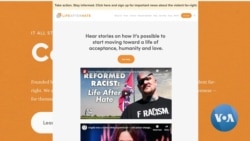U.S. House Judiciary Committee Chairman Jerry Nadler acknowledged Tuesday that hate crimes in the U.S. have risen in recent years and that recent violent acts fueled by animosity were committed on those "perceived to be non-white."
"In each case, the perpetrators were motivated by a belief that people perceived to be non-white, whether they be African Americans, Jews, Muslims or members of other minority communities, were plotting to undermine the white race as part of a ‘great replacement,’" the Democratic lawmaker said during opening remarks at his committee's hearing on white nationalism.
The hearing was prompted by last month's mass shooting at a mosque in Christchurch, New Zealand, where the shooter livestreamed part of the massacre on social media.
The Anti-Defamation League's Eileen Hershenov said white supremacists in the U.S. "have been responsible for more than half" of "all domestic extremist-related murders in the past 10 years," a figure she said skyrocketed to 78 percent in 2018.
Hershenov said her organization's research shows "polarizing and hateful rhetoric on the part of candidates and elected leaders" is only part of the problem. "The other driving force for the resurgence of white supremacy is the role of social media in enabling this hate to spread." She likened the platforms to "round-the-clock digital white supremacist rallies, creating online communities that amplify their vitriolic fantasies.”
Mohammad Abu-Salha, a Clayton, North Carolina, resident whose two daughters and son-in-law were shot and killed in a hate crime in Chapel Hill, North Carolina, in 2015, called on Congress to take preventive action.
“I ask you, I truly plead to you, not to let another American family go through this because our government would not act to protect all Americans.”
Kristen Clarke of the National Lawyers’ Committee for Civil Rights Under Law said white nationalist movements are “tearing away at the fabric of our nation.” She noted that African Americans have "experienced generations of racial terror" and that FBI statistics show they "remain the single group most frequently targeted for hate."
Clarke said her organization has "successfully disrupted online platforms that promote hate and racial violence. She said her group "advocated for Facebook to abandon its ill-conceived policy under which they banned white supremacist activity but permitted white nationalist and white separatist activity because we know these racist ideologies are indistinguishable and equally dangerous.”
In addition to fighting white supremacy in the courts, Clarke called on other institutions to help "tear down the structures that facilitate" it.
"The banks that facilitate commercial transactions, the tech companies that provide open platforms, the web hosts that prop up these sites, are all part of an infrastructure that feeds hate that must be dismantled. Congress must study and consider new laws for combating this online threat, and the federal government must abandon policies that fuel hate.”
Policy leaders from online companies condemned hate crimes and defended their companies' policies on hate speech.
“Facebook rejects all hateful ideologies," said Facebook public policy director Neil Potts. "Our rules have always been clear that white supremacists are not allowed on the platform under any circumstance. In fact, we’ve banned more than 200 white supremacist organizations under our dangerous organizations policy. And last month, we extended that policy to include a ban on all praise, support and representation of white nationalism and white separatism.”
Google’s Alexandria Walden said Google has "invested heavily in machines and people to quickly identify and remove content that violates our policies against incitement to violence and hate speech.”
But even as Walden defended the company's efforts to moderate content, Google subsidiary You Tube shut down the chat feature that was livestreaming the very hearing.
"Due to the presence of hateful comments, we disabled comments on the livestream of today's House Judiciary Committee hearing," a YouTube spokesperson said in a statement.









